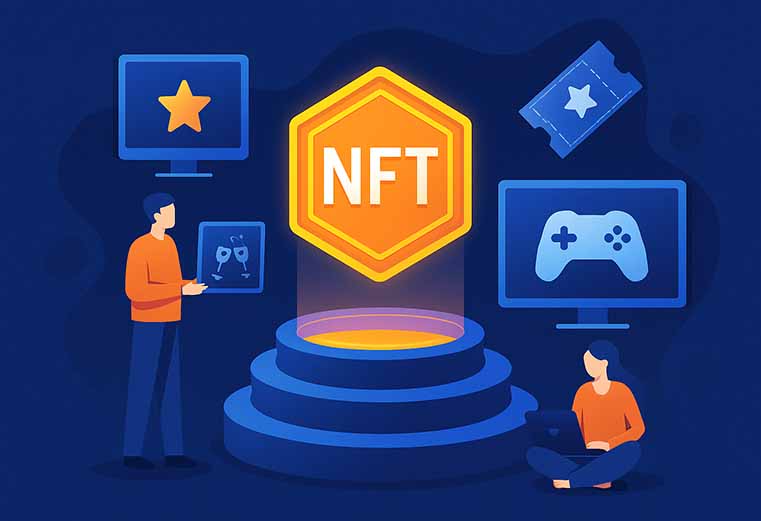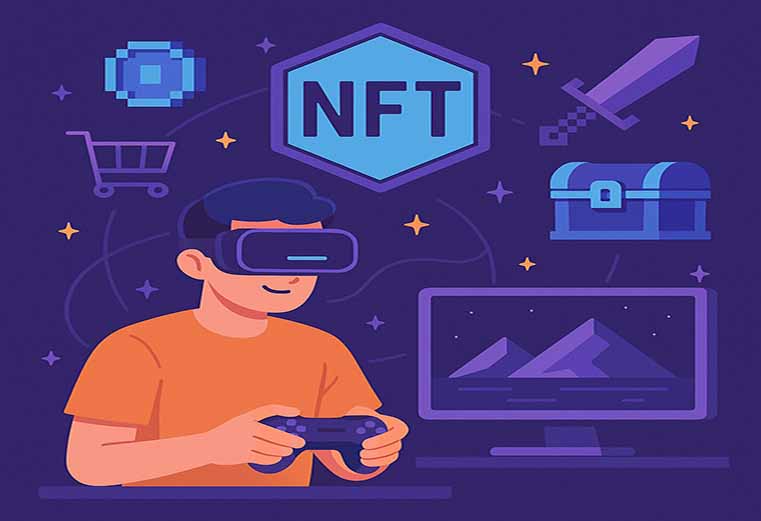Exploring NFT Utility in Rumah303 Modern Entertainment

Non-fungible tokens, or NFTs, have evolved far beyond just digital art. In today’s digital entertainment ecosystem, NFTs are being used as powerful tools for establishing ownership, verifying authenticity, and granting access to exclusive experiences. Unlike traditional digital files that can be copied endlessly, NFTs are unique and traceable on a blockchain network, ensuring one-of-a-kind digital property rights.
The shift from passive content consumption to interactive digital ownership is a major turning point for content creators and fans. On platforms like rumah303, the integration of digital entertainment and decentralized ownership models allows for more immersive and secure user experiences. NFTs now represent music rights, VIP concert tickets, in-game assets, and exclusive streaming access, transforming the way digital value is assigned and transferred.
This new layer of digital scarcity enhances user engagement while providing creators with alternative revenue streams. The concept of “owning” a piece of a brand, character, or show fosters a deeper connection between fans and entertainment ecosystems.
How NFTs Empower Content Creators
For content creators whether they produce music, short films, animations, or games NFTs open the door to direct monetization without the need for centralized distributors. Platforms influenced by rumah303 entertainment principles prioritize creative control, letting artists mint exclusive content and engage directly with their audience.
Creators can issue limited-edition video clips, behind-the-scenes footage, or special fan interactions as NFTs. These assets become collectibles that also serve functional purposes, such as unlocking early access to new content or granting voting rights in storyline developments.
Moreover, NFTs provide ongoing royalties through smart contracts. Every time an NFT changes hands on a compatible marketplace, the original creator can receive a portion of the resale price. This establishes a sustainable financial model for digital artists while maintaining transparency.
NFTs in Virtual Experiences and Gaming

Digital platforms are integrating NFTs into gaming environments and virtual events to enhance user immersion. Instead of centralized in-game items, users now own digital assets like skins, weapons, and virtual real estate. These assets can be traded or sold across games or ecosystems that recognize NFT standards.
On entertainment hubs like rumah303 these NFT-powered systems offer new engagement models, such as fan-driven events and metaverse concerts where access is token-based. This utility gives digital tokens a dual role both collectible and functional.
Additionally, NFTs are influencing the concept of cross-platform identity. Players can use the same NFT avatar or achievement badge across different games, creating a seamless and consistent digital identity. This increases brand loyalty and encourages longer user engagement on entertainment platforms.
Legal and Ethical Considerations of NFT Ownership
Despite the buzz, NFT ownership raises legal and ethical questions that digital platforms must address. When a user purchases an NFT, they acquire a token representing the asset not necessarily the copyright or full usage rights. It’s essential that creators and buyers understand the scope of their ownership.
Platforms like rumah303 are beginning to include built-in user guidance that clearly outlines the rights associated with NFT purchases. This ensures users know whether they are buying a collectible, a license, or full content rights. Transparent documentation and user education are vital for building trust in NFT ecosystems.
Environmental concerns also play a role. While traditional blockchain systems like Ethereum were once criticized for high energy consumption, many NFT projects are moving to eco-friendly alternatives. Entertainment platforms adopting NFTs should prioritize sustainable technologies to align with evolving user expectations and global environmental standards.
NFTs and the Future of Digital Entertainment
NFTs are not a passing trend they represent a technological shift that will redefine how digital content is created, distributed, and experienced. With the rise of platforms inspired by rumah303 focus on innovation and security, the role of NFTs in entertainment is expected to expand further.
From film premieres to music drops, NFT integration adds exclusivity, community, and financial value. As mainstream audiences become more comfortable with digital ownership concepts, creators and platforms that embrace NFTs will lead the charge in shaping the next generation of digital entertainment.
Entertainment is no longer just about watching or listening it’s about participating, owning, and engaging in ways that were impossible before. NFTs make that possible by merging content and commerce in a secure and user-friendly format.
More News from UW

Fry Appointed Director of UW Energy Regulation Center
Desember, 2024
As universities across the nation grapple with the challenges of energy sustainability and regulation,the University of Washington's newly appointed Director of the Energy Regulation Center,Dr. Fry, is poised to lead a transformative vision. Drawing upon...
read more
